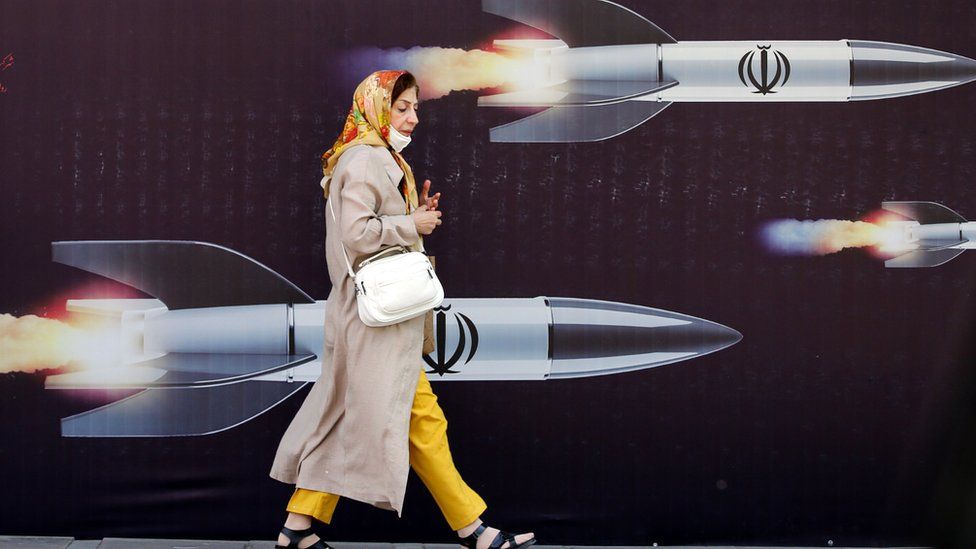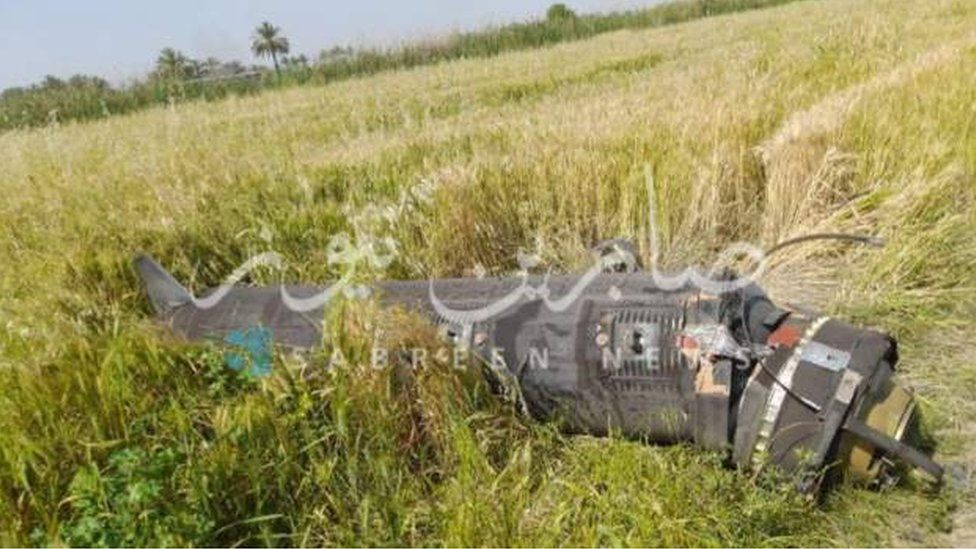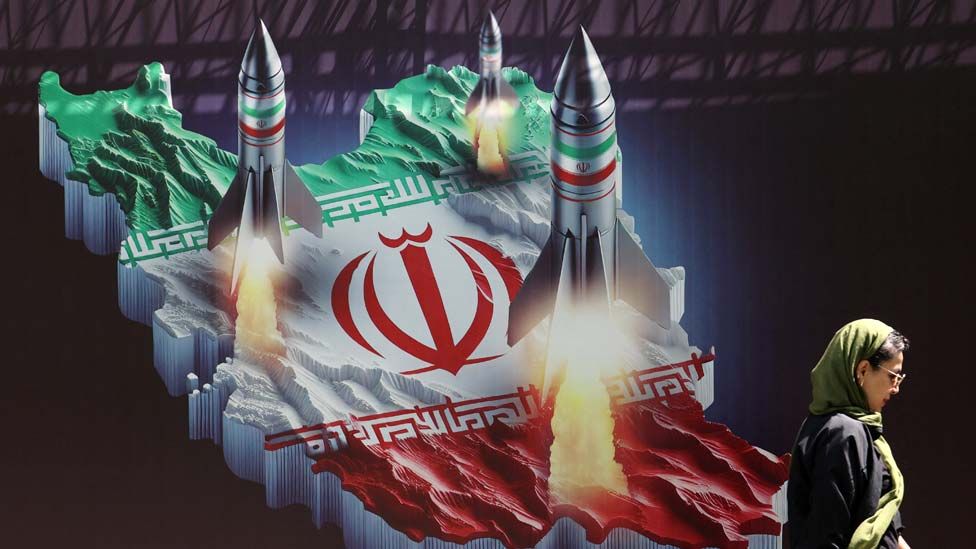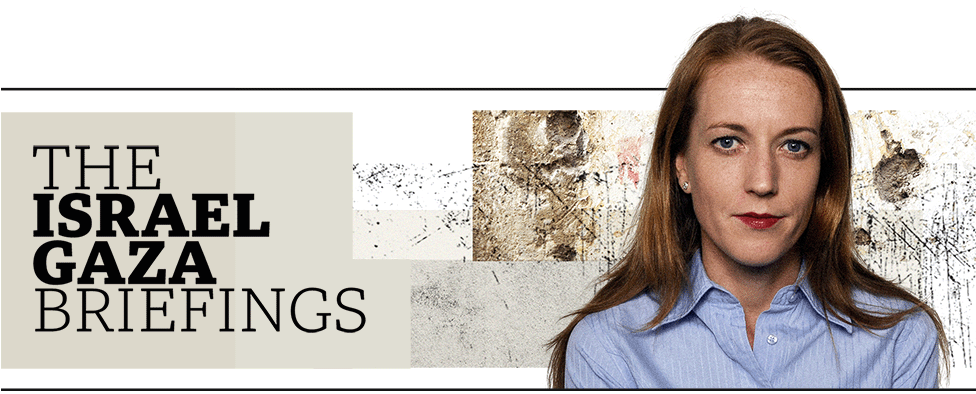
While the media’s glare in the Middle East this past week was diverted to Iran’s dramatic missile and drone attack on Israel, there has been no let-up in fighting in Gaza.
Dozens of Palestinians were killed daily – including many children, according to figures from the Hamas-run health ministry. It now says Israel has killed more than 34,000 people in Gaza since the start of the war.
As Israel’s forces continue with their efforts to destroy Hamas, they have conducted small-scale, often deadly operations, from the top to the bottom of the territory over the past week.
On Tuesday, in the middle of Gaza, relatives clutching limp and bloodstained bodies of small boys and girls rushed from al-Maghazi refugee camp to al-Aqsa Martyrs’ hospital in nearby Deir al-Balah.
Medics at the hospital said that at least 12 people were killed and some 30 injured by shelling in al-Maghazi.
“They were playing in the street. Why were they struck? They weren’t in any position close to Israeli forces,” one man told the BBC. Another added: “They were just playing. They were in the market with people coming and going normally.”
Israel’s military has not commented on what happened there, but this week in Gaza the central refugee camps have been its main focus. It said it was “eliminating terrorists and destroying terrorist infrastructure” such as attack tunnels and military compounds used by armed Hamas fighters in “precise” action.
After Israeli forces were reported to have left another camp, Nuseirat, late on Wednesday, residents began trickling back to inspect the damage to their homes.
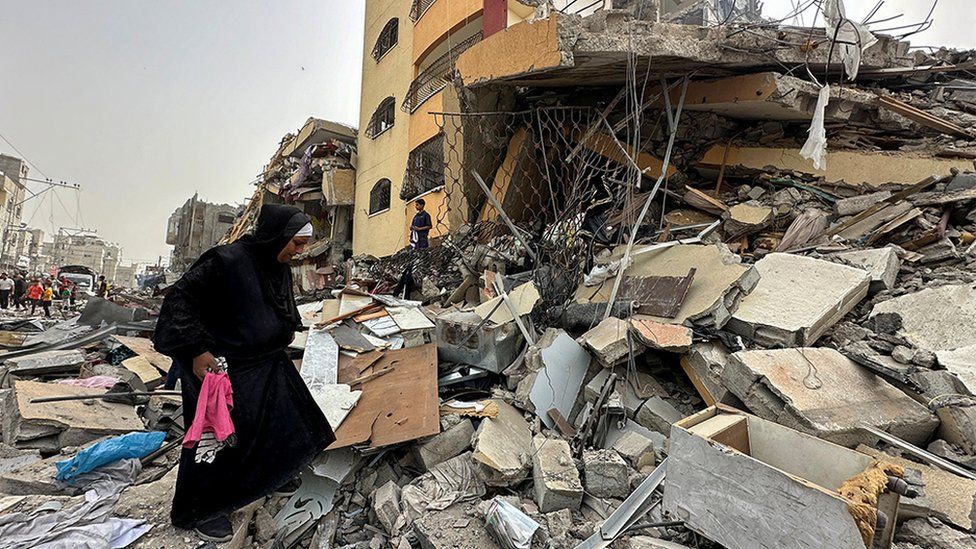
“We have no place to stay, 90% of the houses are destroyed,” one father told us despairingly as he picked his way through the new piles of rubble.
In the very north of Gaza, Israel’s tanks rolled back into Beit Hanoun, which troops had left weeks earlier. Israel said it was targeting Hamas and Islamic Jihad operatives based at schools where displaced families were living. Locals talked of men being stripped and detained.
Footage has also emerged of Israeli strikes in parts of Gaza City, in the north, and Rafah, on the border with Egypt, where hundreds of thousands of Palestinians live in tents after fleeing the fighting elsewhere.
Israeli defence analysts say that the military is carrying out targeted operations against Hamas, in line with a switch to lower-intensity fighting that was agreed with the US.
Earlier this month, Israel withdrew most ground forces from Gaza, leaving just one brigade to secure a line that splits the enclave into two parts – north and south.
While it has since been announced that two reservist brigades are being called up, and some soldiers have been deployed across the border, the prevailing opinion is that a planned ground offensive in Rafah is still some way off.
“I don’t think anything is imminent,” says Prof Chuck Freilich, a former Israeli deputy national security adviser, now based at the Institute for National Security Studies in Tel Aviv. “I don’t think there’s the force there for conducting a major operation in Rafah.”

- EXPLAINED: What we know about Israel’s attack on Iran
- BACKGROUND: Why have Israel and Iran attacked each other?
- ANALYSIS: An audible sigh of relief in the Middle East

Israel has promised to root out remaining Hamas battalions in Rafah – the one Gazan city where it has not yet launched a ground offensive. It believes that some of the remaining 130-plus hostages snatched from southern Israel during the deadly Hamas attacks on 7 October, which also killed more than 1,200 people, are held there.
But Prof Freilich says for “the full-on attack that people were talking about you’d need two things: to move out all the refugees and then to call up some of those reserves”.
“Between those, it’s at least a couple of weeks. And now there’s the [week-long Jewish] Passover holiday.”
The US and other allies point out that a large-scale invasion could deepen an already dire humanitarian crisis.
Amid miserable living conditions and the continuous threat to Rafah, many Gazans stuck there long to return home to the north of the territory.
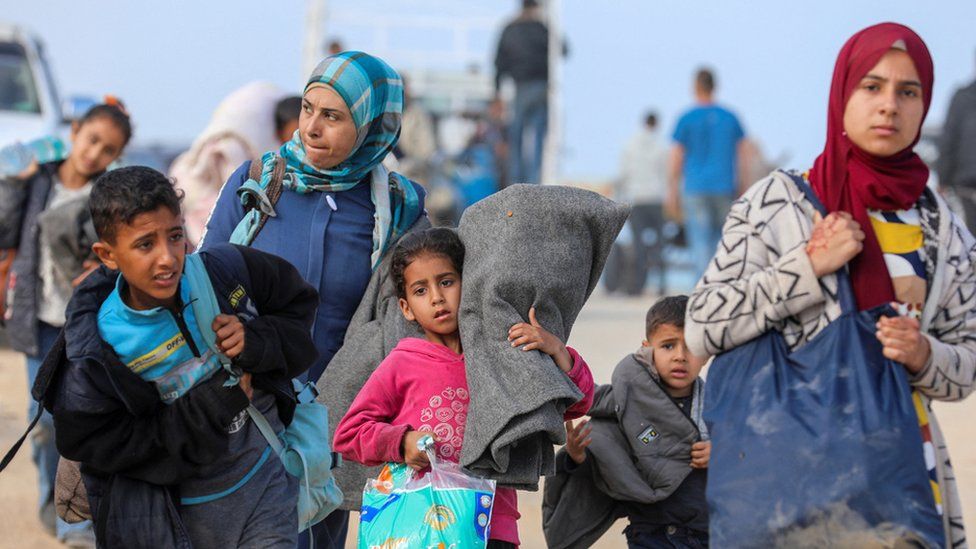
But on Monday, Israel’s military renewed warnings for them not to make the journey, a day after witnesses said its forces had opened fire on crowds heading along a main coastal road. killing five people.
The IDF did not comment directly on that incident, but an Israeli military spokesman said afterwards that Palestinians should stay in southern Gaza because the north is a “dangerous combat zone”.
“We have dreamt of returning home since we left in the early months of the war,” Amr Daoudi told us back in Rafah. “But for now we have put it out of our thoughts.”
More than six months of fighting have flattened vast tracts of the north. Israel’s restrictions on aid have also left some 300,000 who remained there through the war on the brink of famine, according to the United Nations.
International pressure on Israel in the wake of the killing of seven aid workers from US charity World Central Kitchen on 1 April led to a string of announcements on increasing relief to Gaza, notably opening up the Ashdod commercial port and a new northern crossing.
While aid concerns have been overshadowed, in the past week, by fears of a wider regional war, there have been constant updates on developments – Israeli defence officials declaring the arrival of shipments of flour destined for newly reopening bakeries, for example.
Anecdotal evidence, including social media footage of grilled meat being sold in Jabalia camp for the first time in months, has also circulated, suggesting food is becoming more easily available.
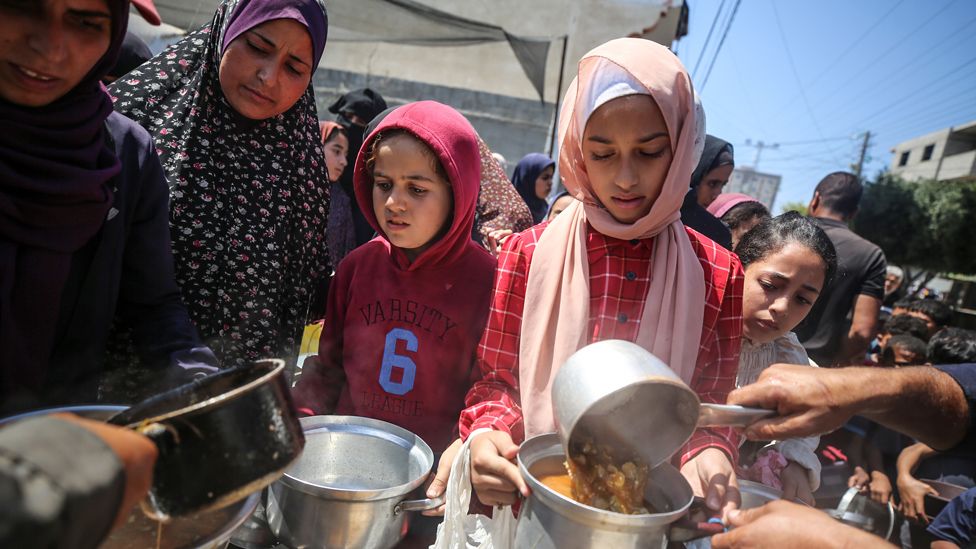
However, aid agencies say that far more needs to be done to reverse critical shortages.
As the UN launched a flash appeal to raise $2.8bn (£2.3bn) in funding, mainly for Gaza, a senior official from its humanitarian office complained of lingering access problems, particularly to reach the north.
“We are dealing with this dance where we do one step forward, two steps backwards; or two steps forward and one step backward,” says Andrea de Domenico, who heads the UN humanitarian office for Palestinian territories.
If Israel’s response to Iran’s recent strikes is now over, drawing a line under the latest round of violence between these two old enemies, the media and foreign players are likely to increase their scrutiny of goings-on in Gaza once again.
Already, we got a hint of this when the UK Foreign Secretary David Cameron came to express solidarity with Israel and try to reduce tensions after the Iranian attacks of 13-14 April.
“The real need is to refocus back on Hamas, back on the hostages, back on getting the aid back in, back on getting a pause in the conflict in Gaza,” he said, ahead of meetings with Israeli and Palestinian leaders.
For now, international mediation efforts to secure a new truce have largely stalled.
The main obstacle remains that Israel will discuss a temporary halt to bring home hostages but will not stop fighting until Hamas is eliminated. Hamas says it will not release the hostages without a path to end the war.
For ordinary Gazans struggling just to survive and Israelis desperate to bring home loved ones trapped in captivity, the best hope now could come from a new diplomatic thrust.
Without it there is the threat of a lingering war which carries a huge cost to humanity and constantly risks sparking further destabilising conflict in an already volatile part of the world.

- World watches nervously to see what Iran does next
- Bowen: Obstacles to peace seem larger than ever
- Is now the time Palestinian politics can start afresh?
- Was this the week Israel and Hezbollah drew closer to war?
- Netanyahu is a survivor, but his problems are stacking up
- Biden treads carefully through Middle East minefield
- Gaza desperately needs more aid but agencies can’t cope

